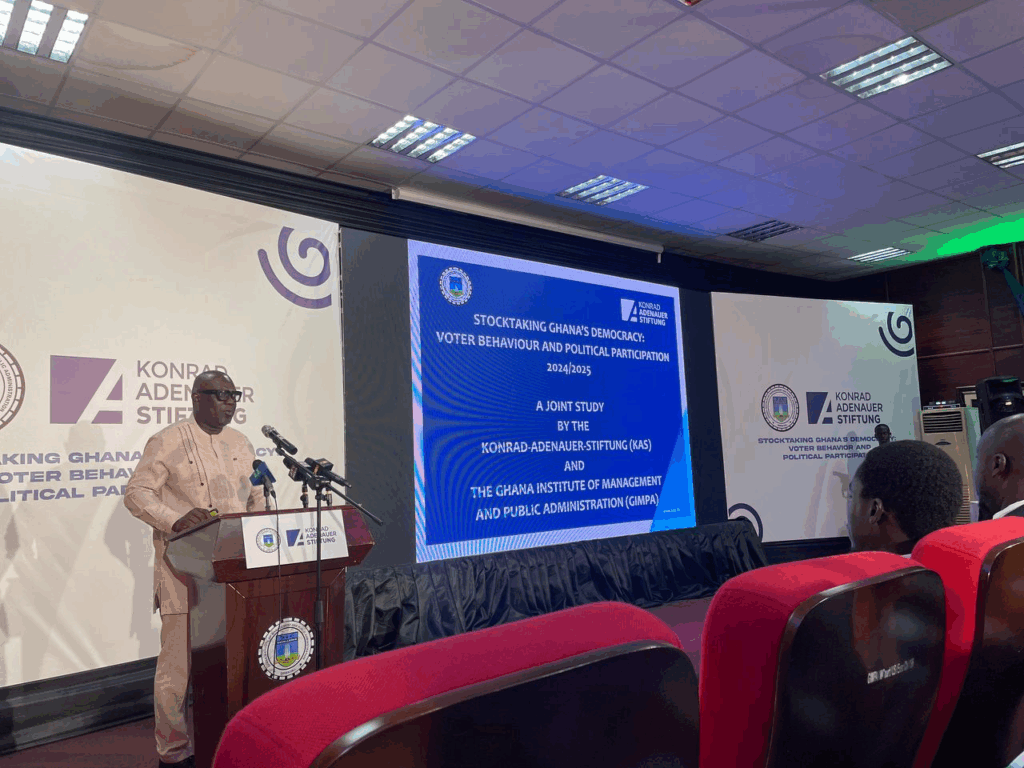A post-election survey by the Ghana Institute of Management and Public Administration (GIMPA), in collaboration with the Konrad Adenauer Stiftung (KAS), has revealed that 81.6% of voters blame the New Patriotic Party’s (NPP) defeat in the 2024 general elections on economic mismanagement, with 47.3% specifically pointing to the high cost of living as the leading cause.
The findings were presented by Dr Joseph A. Darmoe, Director of Programmes at KAS and a Senior Lecturer at GIMPA, during the launch of the report titled “Stocktaking Ghana’s Democracy: Voter Behaviour and Political Participation”, held at GIMPA in Accra on 3 June 2025.
The nationwide survey, conducted between 8 and 20 May 2025, sampled 16,988 registered voters across all 276 constituencies using a multi-stage probability sampling method. The study was conducted through computer-assisted personal interviews (CAPI) and recorded a 99% confidence level with a 1% margin of error.
Key Findings:
Among respondents who blamed the NPP’s defeat on economic mismanagement, 47.3% identified the high cost of living as the dominant concern.
8.7% cited corruption as a key factor in their decision to vote out the party.
Other issues mentioned included the E-levy, arrogant or disrespectful conduct by party representatives, and the betting tax.
Concerns over LGBTQ+ matters were considered, but only by a small fraction.
The data also reveal that 73.5% of voters based their decision on party programmes and manifestos, rather than personal loyalty or ethnic affiliations.
When it came to reasons for choosing a presidential candidate:
46.2% voted based on personal admiration for the candidate.
16.7% were influenced by tribal or ethnic loyalty.
13.8% said their vote was intended to punish the NPP government.
11.6% admitted to voting in exchange for financial inducement.
Additionally, the survey showed that 90.5% of voters live and vote in the same constituency, suggesting that local conditions strongly shape electoral decisions.
The findings point to a maturing electorate increasingly driven by economic realities and policy impact rather than traditional political affiliations.
DISCLAIMER: The Views, Comments, Opinions, Contributions and Statements made by Readers and Contributors on this platform do not necessarily represent the views or policy of Multimedia Group Limited.
DISCLAIMER: The Views, Comments, Opinions, Contributions and Statements made by Readers and Contributors on this platform do not necessarily represent the views or policy of Multimedia Group Limited.

